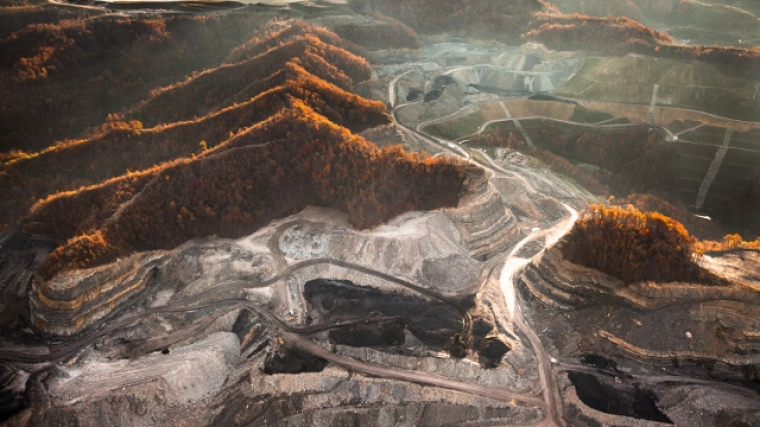Crédit Agricole announces end to global coal mining finance at AGM
Lucie Pinson, Friends of the Earth France
Tel: +33 679543715
Email: lucie.pinson@amisdelaterre.org

Lucie Pinson, Friends of the Earth France
Tel: +33 679543715
Email: lucie.pinson@amisdelaterre.org
Crédit Agricole announced today at its annual general meeting in Lille that it is ending its multi-million euro funding for coal mining projects and companies. Less than seven months before the United Nations conference on climate change in Paris (COP 21), Crédit Agricole has become the second major bank in the world – after Bank of America – to cut its funding for the coal mining sector. Friends of the Earth France and BankTrack have welcomed this step forward and now call on Crédit Agricole to deliver in full for the climate by signing the 'Paris Pledge' and thus end completely the bank's support to the coal industry.
Lucie Pinson, private finance campaigner at Friends of the Earth France, commented:
"Following its recent commitment not to finance the Galilee Basin mining projects in Australia , Crédit Agricole now seems on track to establish itself as a leader in the financial sector when it comes to climate policy. The bank's response to our questioning today was certainly more convincing than the responses we've had from Société Générale or BNP Paribas at their recent AGMs."
"By pulling out of coal mining, Crédit Agricole is acknowledging that we must leave 80% of our coal reserves in the ground if we're to keep global warming below 2°C."
Paul Corbit Brown, from the US organisation Keepers of the Mountains and present at the Crédit Agricole AGM today to ask the bank to decisively end its support for the barbaric mountaintop removal (MTR) coal mining technique used in the Appalachian mountains, said:
"Crédit Agricole is going even further than Bank of America with its recent announcement that it will reduce but not end its investments in coal mining. Notable too is that Crédit Agricole's commitment covers much of its financial support, including finance for projects, for companies and underwriting services."
Crédit Agricole had previously announced in 2013 an end to its MTR financing, yet it had remained involved in the financing of the most active MTR companies via its underwriting services.
While campaigners welcomed Crédit Agricole's announcement today, they also pointed out its limitations. One principal drawback is that the new Crédit Agricole policy applies only to companies that are focused specifically on coal extraction. Therefore the bank can continue to finance coal extraction via support for multi-nationals such as BHP Billiton, Glencore or Anglo American. A further caveat is that Crédit Agricole has announced nothing concerning its financing of coal power plant projects and producers of electricity derived from coal, a sector that the bank supported with more than 4.7 billion euros between 2005 and April 2014.
Thomas Mnguni, a South African who attended today's AGM to inform Crédit Agricole that coal is an obsolete energy form both in the north and the south, commented:
"You can't talk about 'small support' or projects with 'minor impacts' when you talk about coal. Whether it's extraction or combustion in power plants, coal destroys the climate and the livelihoods of entire communities. In 2009, Crédit Agricole participated in the financing of the massive Medupi and Kusile coal plant projects in South Africa which have only reinforced inequality in the country. Today I asked Crédit Agricole to refrain from making the same mistake and to commit to not provide finance for new coal plants, in particular for the Thabametsi plant being developed by Engie in South Africa. Instead, as South Africa has one of the best potentials for renewable energy in the world, the bank should be supporting this sector's development."
Yann Louvel, BankTrack's Climate and Energy coordinator, said:
"After ten years of campaigning from Friends of the Earth France and BankTrack, we welcome this breakthrough from Crédit Agricole. We now call on the bank to go further by signing the Paris Pledge and ending its support for the coal sector completely. This should start with Crédit Agricole pulling out of the Plomin C coal plant project in Croatia and extend to no future financing of any coal plant. The bank now has seven months to quit coal."
Notes for editors:
1. Bank of America announced on May 6 this year that its updated coal policy now includes a commitment to reduce its lending to coal mining companies worldwide. See Rainforest Action Network's press release:
http://www.ran.org/breaking_bank_of_america_dumps_coal_mining_in_sweeping_new_policy
2. At the end of March this year, BNP Paribas, Crédit Agricole and Société Générale committed to not finance coal mining projects and associated infrastructure in the Galilee Basin, the second biggest zone for potential coal development in the world. See our press release:
http://www.banktrack.org/show/news/victory_for_the_climate_and_environment_french_banks_pledge_not_to_finance_mega_coal_projects_in_australia_s_galilee_basin
3. New briefings describing the coal financing of BNP Paribas, Crédit Agricole and Société Générale are available at:
- BNP Paribas briefing http://bit.ly/1R37BY5
- Crédit Agricole briefing http://bit.ly/1KjCUgn
- Société Générale briefing http://bit.ly/1cOLju2
4. See the reaction from Friends of the Earth France and BankTrack to the recent BNP Paribas AGM: http://www.amisdelaterre.org/AG-de-la-BNP-Paribas-encore-une.html
http://www.banktrack.org/show/pages/banking_on_coal_2014_report
7. See this page for more details about the Paris Pledge: http://www.amisdelaterre.org/Banques-francaises-signez-l-Appel.html
